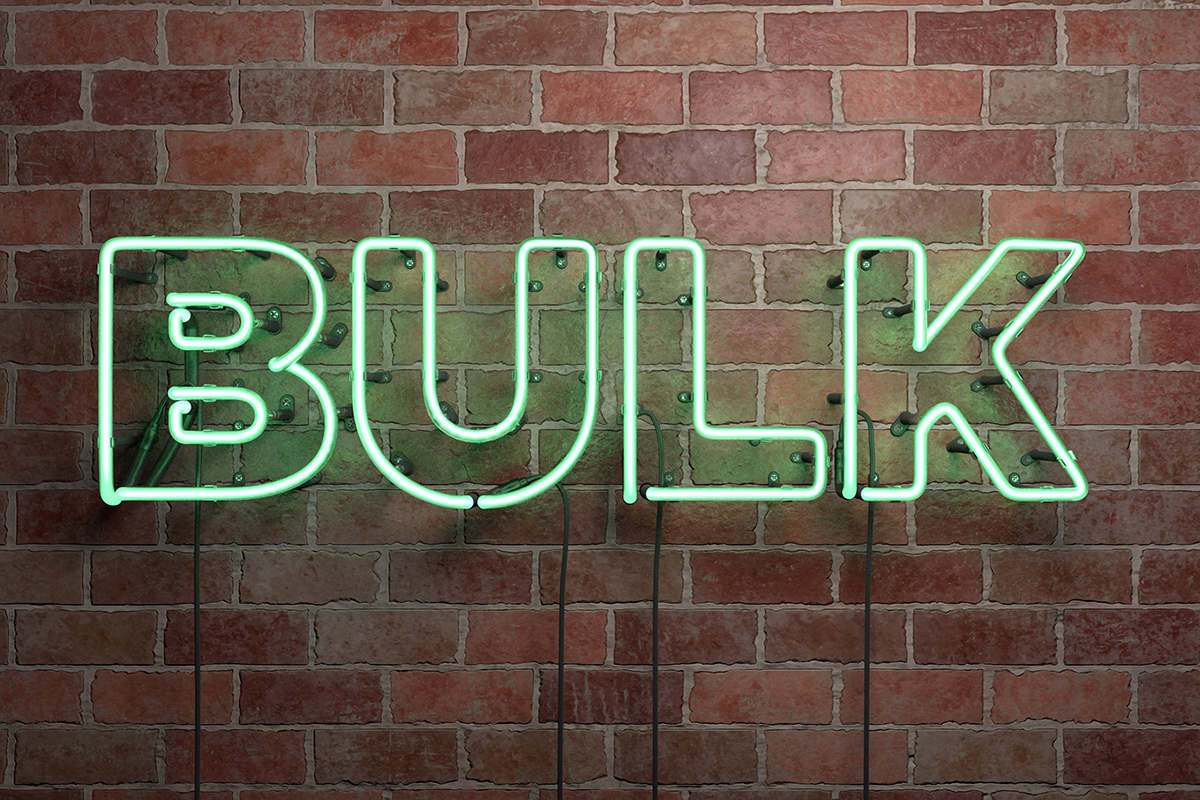How to Structure a Meal Plan for Bulking | QA
Debbie James, RDN, helps answer a reader’s question on how to eat properly for bulking.


I work out in the morning about 5am every day. I also participate in intermittent fasting. My question is about the intake of protein. They say after a workout within about 30min you’re supposed to intake the protein, but that would break my fast (I eat at 11:30am every day). Should I break my fast or just be sure to intake enough protein within the day?
– Celeste C.

Choosing between the benefits of intermittent fasting and refueling post workout depend on your primary goals. Losing weight would dictate adhering to your time schedule for eating, while gaining strength or lean mass would necessitate repleting muscle building blocks in a timely manner. Endurance exercise repletion generally involves carbohydrate recovery – though protein helps. Really, we may only be talking about 50-75 calories or so from approximately 15 grams protein! If you think that would damage your fasting impact, then skip it. But doing so will certainly mean resistance workouts won’t have the maximum intended outcome.
– Debbie J., MS, RD
This article should not replace any exercise program or restrictions, any dietary supplements or restrictions, or any other medical recommendations from your primary care physician. Before starting any exercise program or diet, make sure it is approved by your doctor.
Some questions have been edited for length and/or clarity.
 Have a nutrition question? Our registered dietitian is ready to help!
Have a nutrition question? Our registered dietitian is ready to help!
Email nutrition@lafitness.com or submit your question below and it may be featured in an upcoming article!
Debbie James, RDN, helps answer a reader’s question on how to eat properly for bulking.
I go to the gym every morning at 6:00 a.m. Every morning I make a banana, strawberry, cranberry juice smoothie with a scoop of whey protein and crushed ice. Also, after my work out I have a protein bar that usually has about 20-25 grams of protein. – Gary I...

Welcome to the 36th episode of the Living Healthy podcast, presented by LA Fitness. We’re back and we’re kicking off the new year with a host of fresh new topics!
When we think about our nutrition plan, we often focus on what we eat. What we drink is just as important! Today we’re talking about everything from your daily water intake to what you drink before and after your workout. We even get into some myth busting during “Brittany’s Mythical Moment.”
Is cow’s milk still a necessary staple? Are recovery drinks actually doing anything for you? What is kombucha and what does it taste like? Tune in now to soak up all the good info!
How Are We Doing?
This podcast should not replace any exercise program or restrictions, any dietary supplements or restrictions, or any other medical recommendations from your primary care physician. Before starting any exercise program or diet, make sure it is approved by your doctor.
Intro
0:01
Introduction of Registered Dietitian, Debbie James
2:54
WATER
How Much Water Should We Be Drinking Daily?
3:34
How Does Drinking Water Affect Our Health?
6:05
What Happens When You Don’t Get Enough Water?
6:57
Should You Have Water or Gatorade Before a Workout?
9:33
COFFEE
Can You Fit Coffee into a Healthy Lifestyle?
11:28
What are the Best Additives for Your Coffee?
12:53
Coffee Later in the Day
14:37
TEA
Is Green Tea a Metabolism Booster?
16:38
How to Tell if Your Beverage is Too Hot to Drink
20:01
Brittany’s Mythical Moment – Is Carbonation Weakening Your Bones?
20:54
MILK
When are Non-Dairy Milks Good Alternatives to Dairy Milk?
24:56
What is the Benefit of Non-Dairy Milk?
25:45
Is Cow’s Milk Still Important?
27:24
SODA AND ENERGY DRINKS
What Happens When You Drink Soda Every Day?
29:10
Are Diet Soda Additives Bad?
31:01
How Do Energy Drinks Work in Our Body?
34:03
What are Some Tips to Help Cut Back on Soda and Energy Drinks?
35:35
KOMBUCHA
What’s in Kombucha?
37:32
Taste Test
38:14
Why Drink It?
38:37
Why Drink It? – Recap for Andrew Who Wasn’t Paying Attention
41:18
EXERCISE AND HEALTH DRINKS
42:24
Pre-workout Drinks – Drink it or Steer Clear?
42:42
Is it Bad for You or for Your Heart?
43:30
Recovery Drinks – Do They Help or is it Just Marketing?
44:44
MEAL REPLACEMENT DRINKS
46:08
Which Ingredients to Look for
48:25
Actionable Advice
49:33
Outro
50:27
On this episode of the Living Healthy Podcast, we discuss popular beverages and their impact on your health with our Registered Dietitian, Debbie James.


Hello. I have a couple of questions on diet and nutrition if I may ask. I’m an 18-year-old male. I currently weigh ~143-146 lbs. I want to take on bulking but I’m not sure on what meal plan to use. Would you be able to help me out or point me in the right direction?Currently I have a full-time job with overtime, but I still manage to go to the gym almost every day even though I’m tired. I eat breakfast around 4am before work, pack myself 2 lunches, and also eat dinner around 6-8pm. I greatly appreciate any advice I can get from you guys. Couldn’t be happier with the gyms and the sauna by the way. Thanks
– Joshua A.

Thanks for the compliment! A specific meal plan would depend on your lifestyle and food preferences in addition to your anthropometrics and weight gain goals. Working up a meal plan from scratch isn’t daunting – see our article How to Create a Meal Plan. You’d want to focus on increased calories and protein. That said, I realize following an already set list is desirable. If you’re set on that, I’d suggest a mass-building meal plan developed by a sports nutritionist such as a Certified Specialist in Sports Dietetics (CSSD).
My top diet tips for bulking include:
Time it right. Fuel your muscles properly pre- and post-workout to capitalize on the surge of hormones driving anabolism. The nutrition window to boost protein synthesis is considered about 30 minutes before and after weight training. Easy to digest lean proteins and low-fiber carbohydrates are the prime choices. Examples are whey shakes, egg whites, poultry breast, bagels, and pretzels.
Resources:
– Debbie J., MS, RD
This article should not replace any exercise program or restrictions, any dietary supplements or restrictions, or any other medical recommendations from your primary care physician. Before starting any exercise program or diet, make sure it is approved by your doctor.
Some questions have been edited for length and/or clarity.
 Have a nutrition question? Our registered dietitian is ready to help!
Have a nutrition question? Our registered dietitian is ready to help!
Email nutrition@lafitness.com or submit your question below and it may be featured in an upcoming article!
Debbie James, RDN, helps answer a reader’s question on how to eat properly for bulking.
I go to the gym every morning at 6:00 a.m. Every morning I make a banana, strawberry, cranberry juice smoothie with a scoop of whey protein and crushed ice. Also, after my work out I have a protein bar that usually has about 20-25 grams of protein. – Gary I...
Be the first to know about exclusive
content, deals and promotions